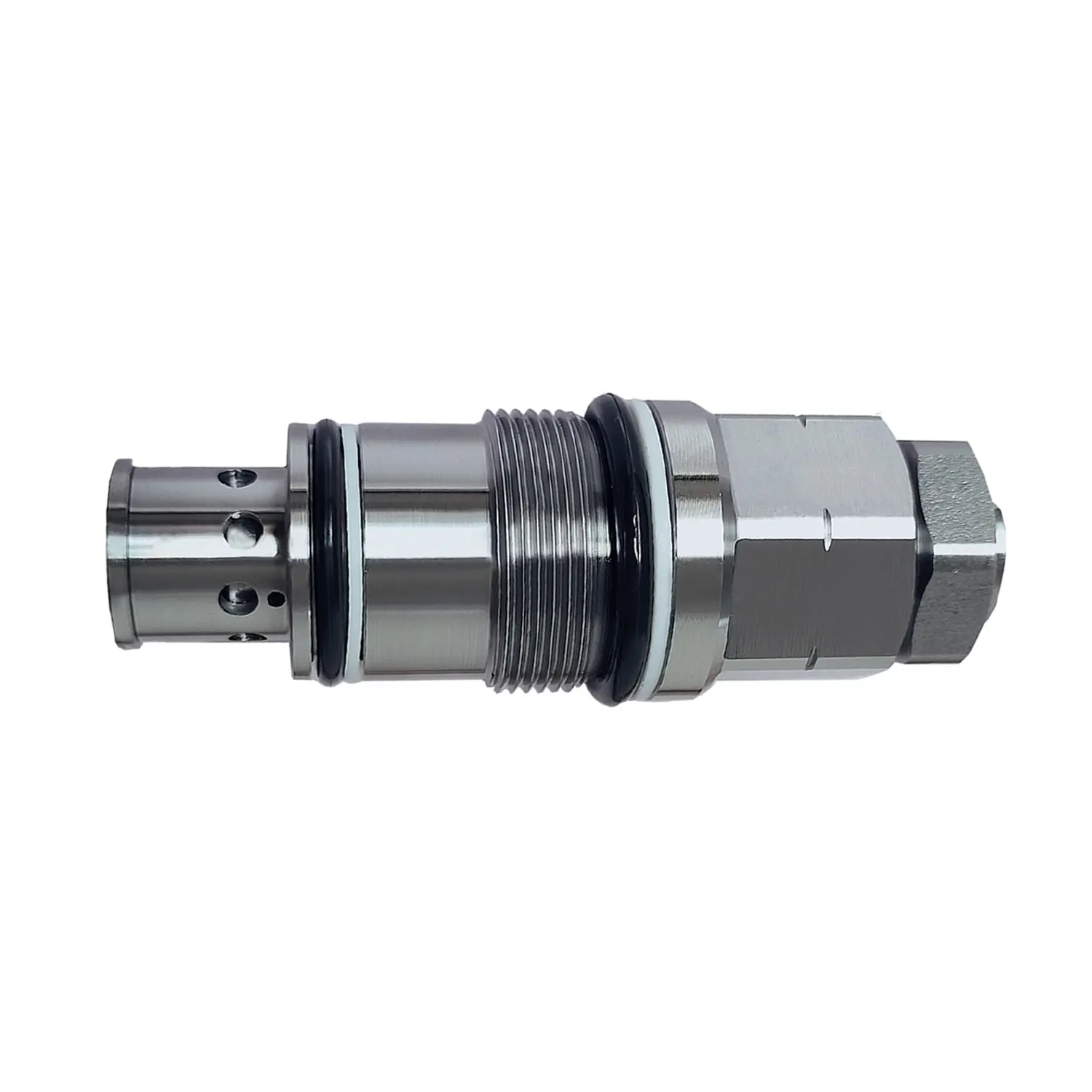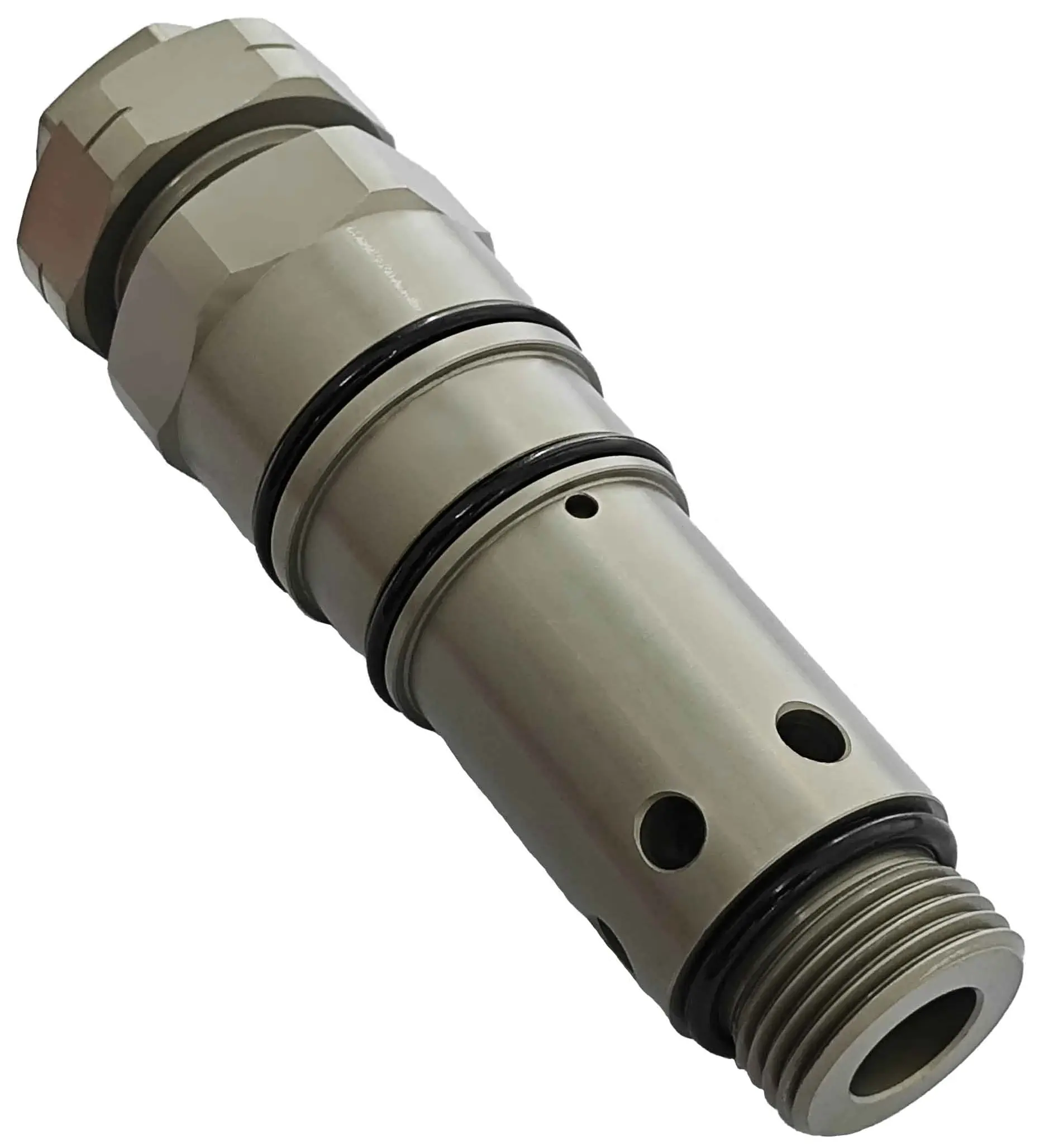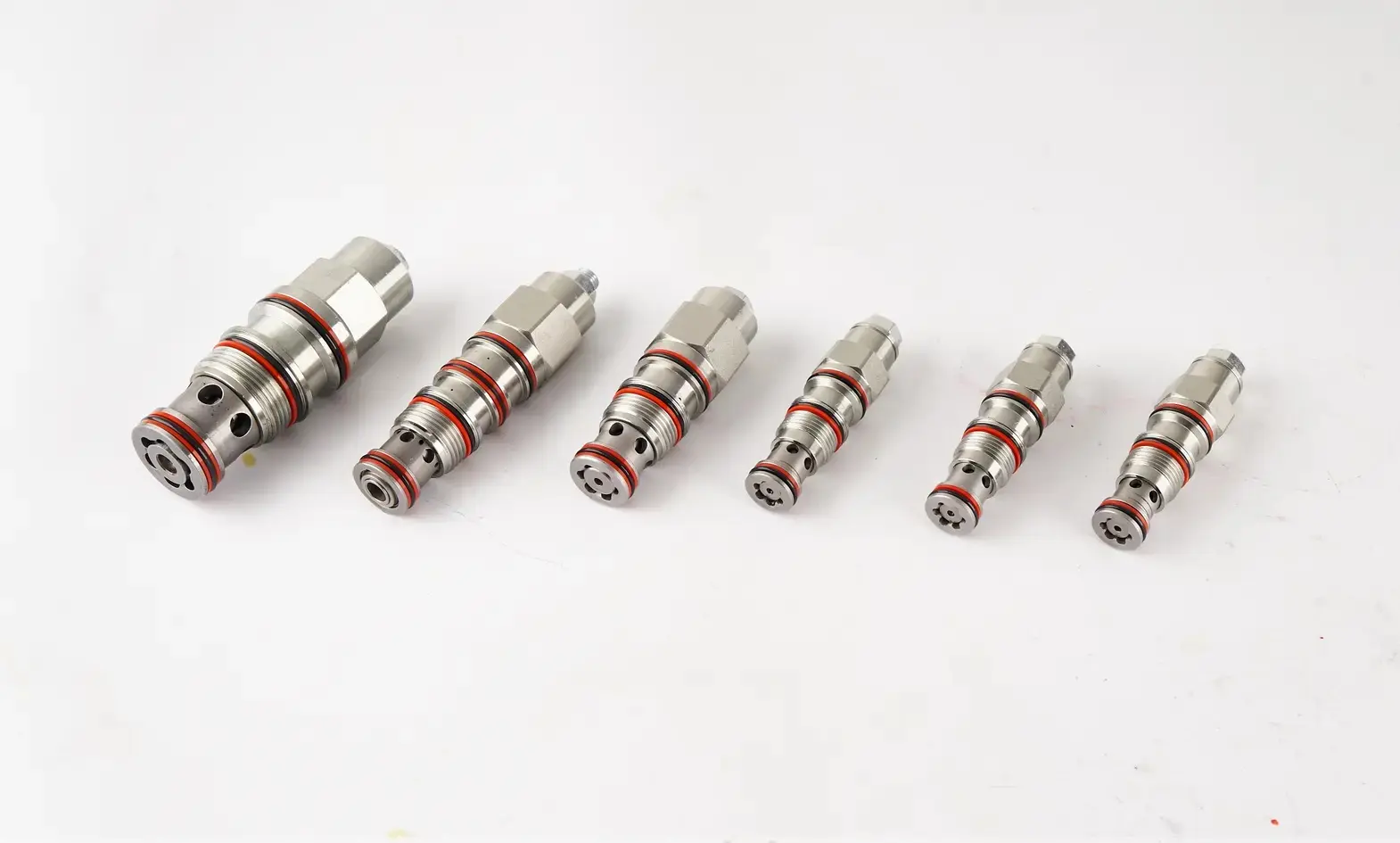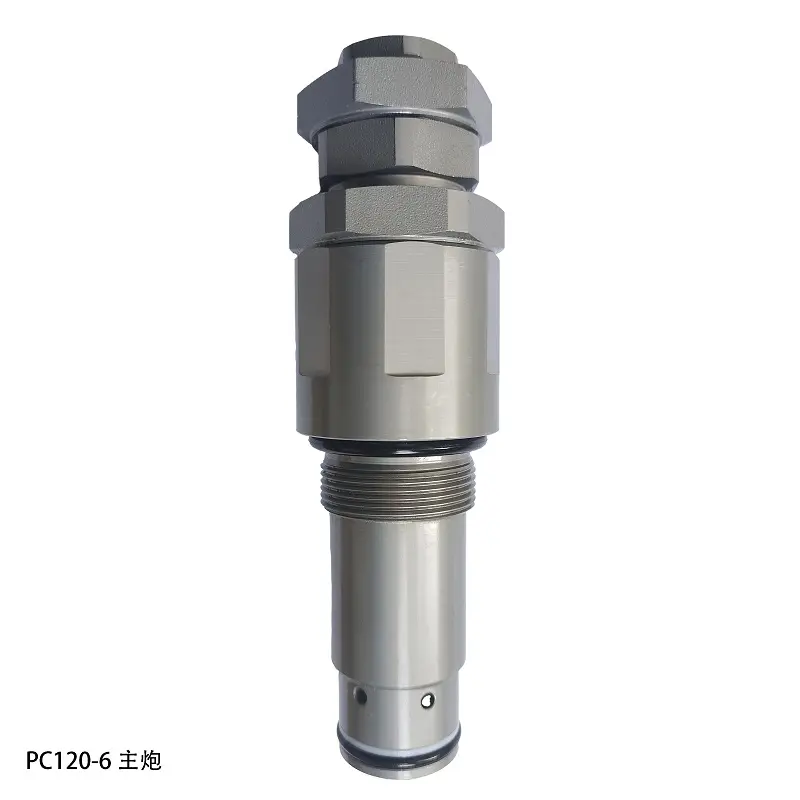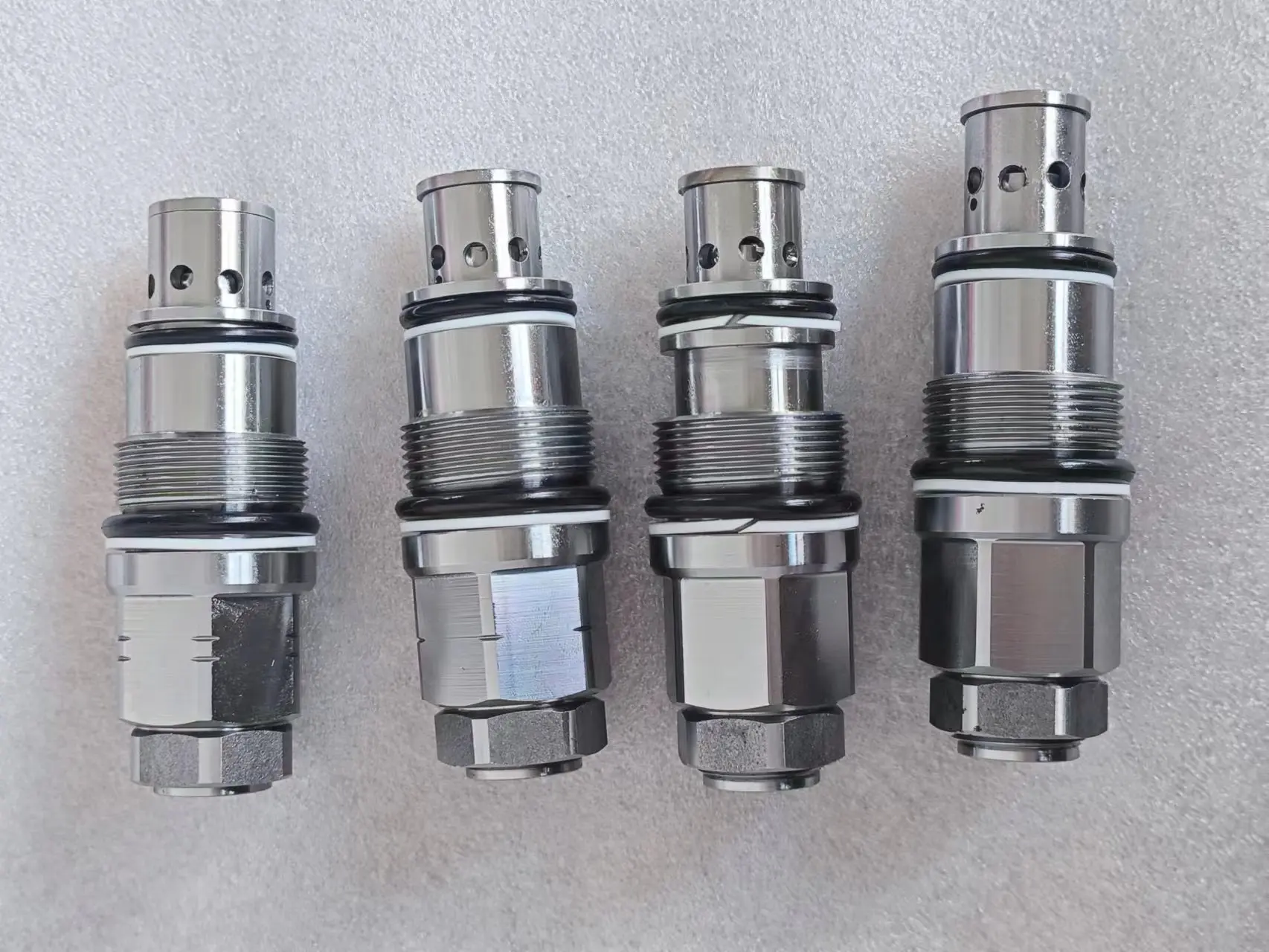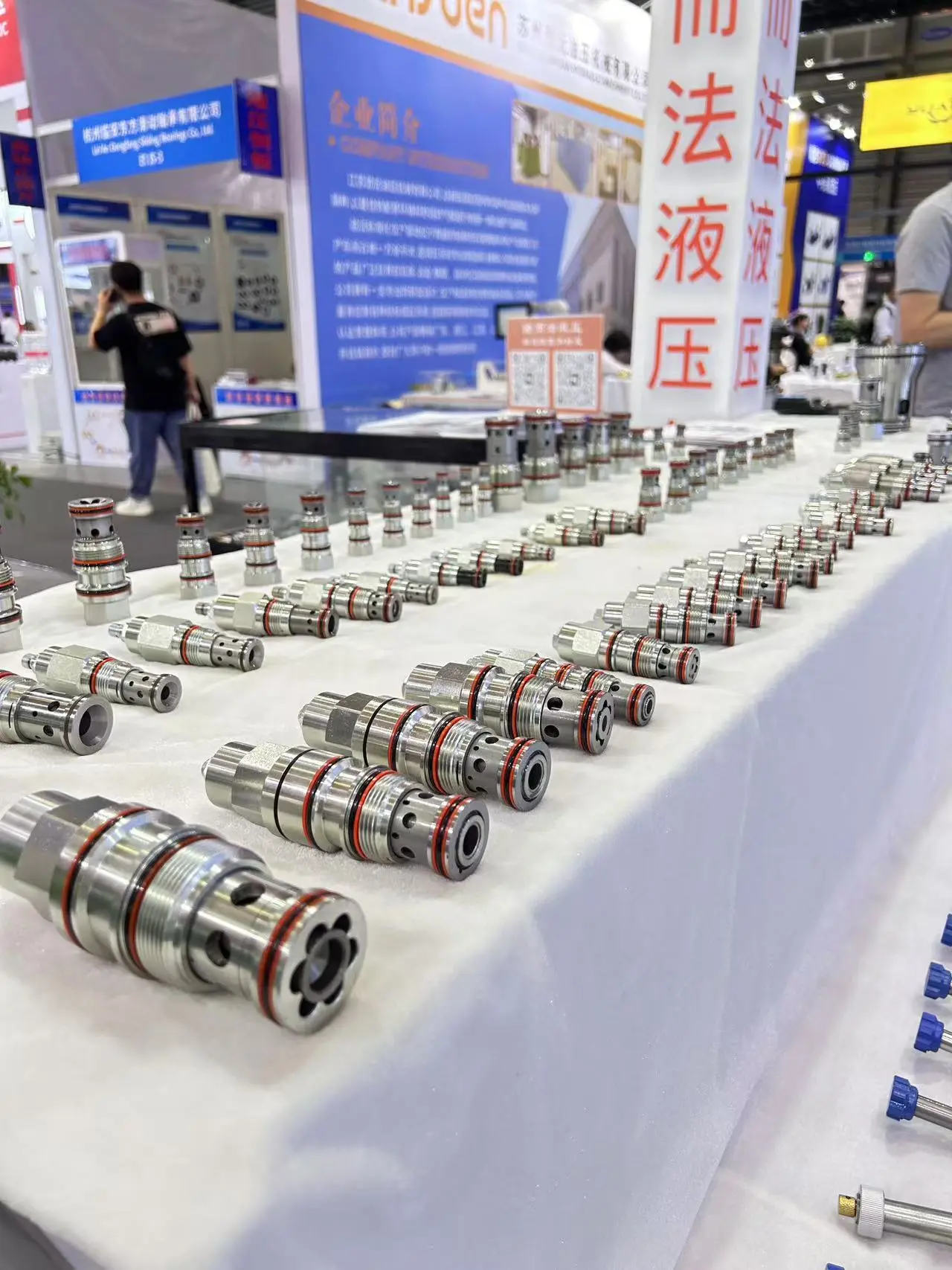hydraulic main control valve for excavators
hydraulic main control valve for excavators
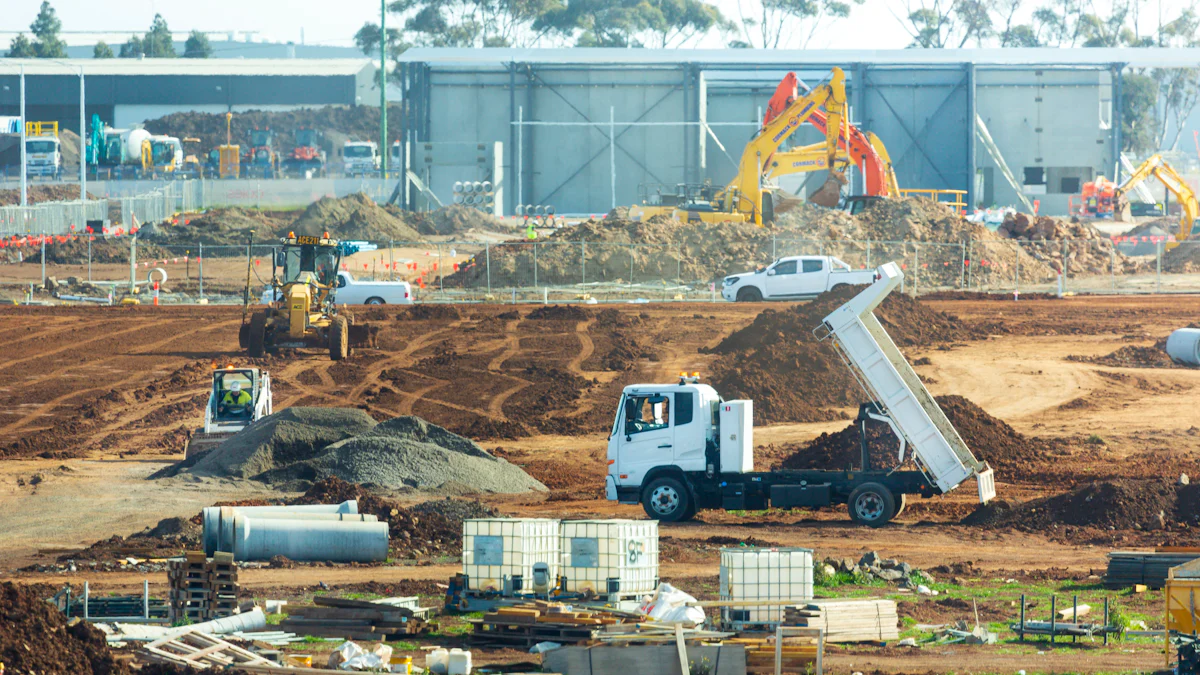
A hydraulic Main Control Valve plays a crucial role in excavators. It directs hydraulic fluid to various functions, such as lifting and digging. This valve ensures that your excavator operates efficiently and smoothly. By regulating the flow of hydraulic fluid, it allows for precise control over the machine's movements. This precision not only enhances productivity but also reduces fuel consumption and emissions. With advancements like digital hydraulics, you can experience even faster and smoother operations. Understanding the importance of this component helps you appreciate its impact on your excavator's performance and longevity.
Functionality of the Hydraulic Main Control Valve
How It Works
Controlling Hydraulic Fluid Flow
The hydraulic main control valve is essential for managing the flow of hydraulic fluid in your excavator. This valve acts as a gatekeeper, directing fluid to various parts of the machine. When you operate the excavator, the valve opens and closes pathways, allowing hydraulic fluid to move into cylinders or motors. This movement powers the excavator's arms and other components. By controlling the flow, the valve ensures that each part receives the right amount of fluid at the right time. This precision is crucial for smooth and efficient operation.
Interaction with Other Excavator Systems
The hydraulic main control valvedoesn't work in isolation. It interacts with other systems in your excavator to ensure seamless operation. For instance, it connects with the hydraulic pump, which supplies the fluid. The valve also works with the Relief Valve to manage pressure levels, preventing damage from excessive pressure. Additionally, it communicates with the excavator's electronic systems, especially in modern machines with digital hydraulics. This integration allows for real-time adjustments, enhancing the machine's responsiveness and efficiency.
Operational Mechanisms
Valve Operation Principles
Understanding the operation principles of the hydraulic main control valve helps you appreciate its role. The valve uses spools to open and close fluid pathways. When you move the excavator's controls, these spools shift positions, directing fluid flow. This movement is precise, allowing for accurate control over the excavator's functions. The valve's design ensures minimal resistance, promoting efficient fluid movement and reducing energy loss.
Types of Control Methods
Different control methods exist for operating the hydraulic main control valve. Manual control involves direct manipulation of levers, common in older or simpler machines. In contrast, modern excavators often use electronic control systems. These systems provide more precision and flexibility. They allow you to program specific movements, enhancing the excavator's capabilities. Some advanced models even incorporate digital hydraulics, offering faster response times and smoother operations.
Components of the Hydraulic Main Control Valve
Understanding the components of the hydraulic main control valve is essential for appreciating its functionality in excavators. Each part plays a specific role in ensuring the efficient operation of your machine.
Main Components
Spool Valve
The spool valve is a critical component of the hydraulic main control valve. It directs the flow of hydraulic fluid within the system. When you operate the controls, the spool valve shifts positions. This movement opens and closes pathways, allowing fluid to reach different parts of the excavator. The precision of the spool valve ensures that each component receives the correct amount of fluid, which is vital for smooth operation.
Relief Valve
The relief valve serves as a safety mechanism within the hydraulic main control valve. It manages the pressure levels in the system. When pressure exceeds safe limits, the relief valve opens to release excess fluid. This action prevents damage to the Hydraulic System and ensures the longevity of your excavator. By maintaining optimal pressure, the relief valve contributes to the overall efficiency and safety of the machine.
Specific Functions of Each Component
Flow Regulation
Flow regulation is a primary function of the hydraulic main control valve. The spool valve plays a significant role in this process. By adjusting the position of the spool, you can control the direction and volume of hydraulic fluid. This regulation allows for precise movements of the excavator's arms and other components. Accurate flow control enhances the machine's performance and reduces energy consumption.
Pressure Management
Pressure management is another crucial function of the hydraulic main control valve. The relief valve ensures that the system operates within safe pressure limits. By releasing excess pressure, the relief valve protects the hydraulic components from damage. Effective pressure management not only extends the life of your excavator but also improves its operational efficiency. Understanding these components and their functions helps you maintain your machine for optimal performance.
Importance of the Hydraulic Main Control Valve
Impact on Excavator Performance
Efficiency in Operations
The hydraulic main control valve significantly boosts your excavator's efficiency. By precisely directing hydraulic fluid, it ensures that each component operates optimally. This precision reduces energy waste, leading to lower fuel consumption. Excavators equipped with efficient hydraulic main control valves often show improved productivity and reduced emissions. You benefit from a machine that performs tasks faster and more economically.
Precision in Control
Precision is crucial in excavation tasks. The hydraulic main control valve provides you with the ability to control the excavator's movements accurately. This control enhances the machine's responsiveness, allowing you to perform delicate operations with ease. Whether you're lifting heavy loads or performing intricate digging tasks, the valve ensures that your actions translate into precise movements. This precision not only improves work quality but also minimizes the risk of errors.
Contribution to Machine Longevity
Preventing Wear and Tear
Regular use of your excavator can lead to wear and tear. However, the hydraulic main control valve helps mitigate this issue. By maintaining optimal pressure levels, it prevents excessive strain on hydraulic components. This prevention reduces the likelihood of damage, extending the life of your machine. Proper maintenance of the hydraulic system further enhances this benefit, ensuring that your excavator remains in top condition for longer periods.
Enhancing Durability
Durability is a key factor in the longevity of your excavator. The hydraulic main control valve plays a vital role in enhancing this durability. By efficiently managing hydraulic fluid flow and pressure, it protects critical components from premature failure. This protection means fewer breakdowns and repairs, saving you time and money. With a well-maintained hydraulic system, your excavator can withstand demanding tasks and harsh environments, proving its reliability over time.
Maintenance Tips for the Hydraulic Main Control Valve
Proper maintenance of the hydraulic main control valve is essential for ensuring your excavator operates efficiently and reliably. By following these maintenance tips, you can extend the life of your equipment and prevent costly repairs.
Regular Inspection and Cleaning
Regular inspection and cleaning are crucial for maintaining the hydraulic main control valve. You should routinely check for signs of wear and damage. Look for any visible cracks, corrosion, or unusual wear patterns on the valve components. Early detection of these issues can prevent more severe problems down the line.
Identifying Wear and Damage
During inspections, pay close attention to the valve's surface and connections. Check for leaks, as they often indicate worn seals or damaged components. Increased noise levels or erratic operation can also signal potential issues. If you notice any of these signs, address them promptly to avoid further damage.
Cleaning Procedures
Keeping the hydraulic main control valve clean is vital for its optimal performance. Use a soft brush or cloth to remove dirt and debris from the valve surfaces. Ensure that the hydraulic fluid is clean and free from contaminants. Regularly replace filters to maintain fluid cleanliness. Clean components contribute to smoother operation and reduce the risk of malfunctions.
Troubleshooting Common Issues
Even with regular maintenance, issues can arise. Knowing how to troubleshoot common problems can save you time and money.
Addressing Leaks
Leaks are a common issue with hydraulic systems. If you detect a leak, first identify its source. Check seals, hoses, and connections for damage. Replace any faulty parts immediately. Properly addressing leaks prevents fluid loss and maintains system pressure, ensuring efficient operation.
Ensuring Proper Lubrication
Lubrication is essential for the smooth operation of the hydraulic main control valve. Ensure that all moving parts are adequately lubricated to reduce friction and wear. Use the recommended lubricant for your specific valve model. Proper lubrication enhances the efficiency of the valve and extends its lifespan.
By following these maintenance tips, you can ensure that your hydraulic main control valve remains in excellent condition. Regular inspections, cleaning, and prompt troubleshooting will help you maintain your excavator's performance and reliability.
In this blog, you explored the critical role of the hydraulic main control valve in excavators. You learned how it directs hydraulic fluid, ensuring efficient and precise operations. Understanding this component's functionality helps you appreciate its impact on performance and longevity. Regular maintenance is essential. It extends the life of your equipment and enhances efficiency. By proactively inspecting and maintaining your hydraulic system, you prevent costly repairs and ensure optimal performance. Remember, addressing issues promptly keeps your excavator running smoothly and safely.





